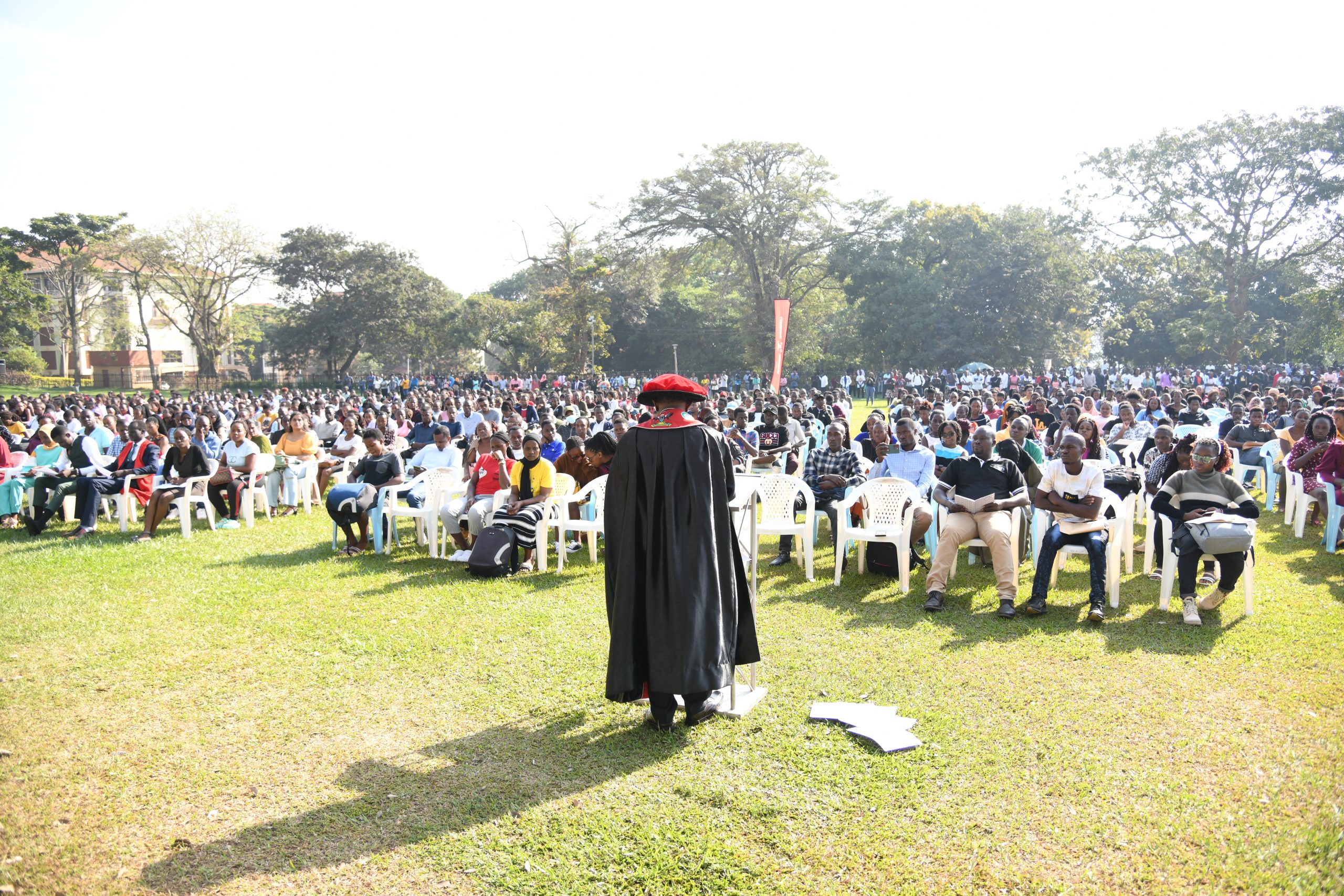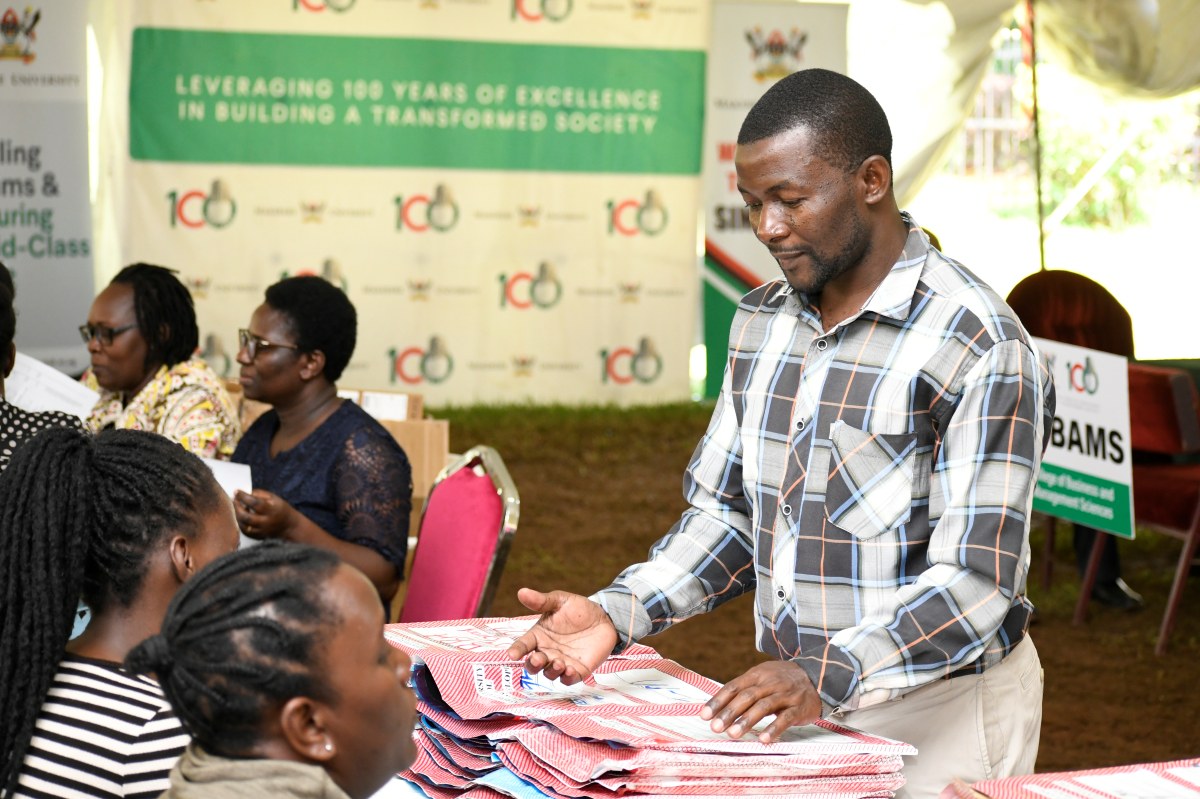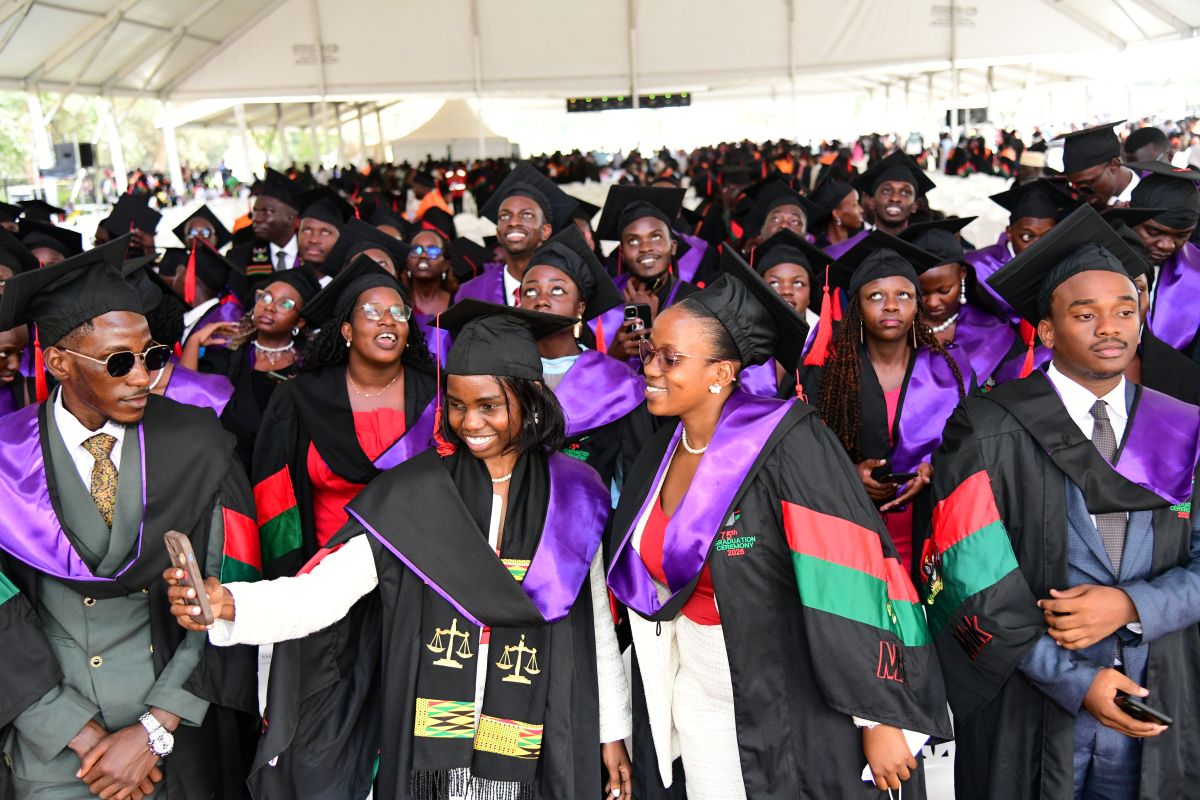The Makerere University Council has received updates from its Committee on Quality Assurance (QA) and Gender Mainstreaming (GM) on the progress of restructuring academic programmes at Makerere University. This was during a retreat held from 5th to 7th March 2020 in Entebbe. The aforementioned Committee, headed by Rt. Hon. Daniel Fred Kidega, is charged with analyzing various processes at Makerere University and recommending changes to Council. Rt. Hon. Kidega doubles as the Vice Chairperson of Council.
“The Committee will look into what needs to be done to raise the university to a higher level in terms of its goals. This committee brings together two important Directorates: Quality Assurance and Gender Mainstreaming. My experience is that we have been so engaged on academic issues, but the committee intends to go beyond that. Other issues that have been left hanging over the years need to be brought to the fore,” explained Rt. Hon. Kidega.
In a presentation titled, ‘Making Mak Number One,’ Dr. Vincent Ssembatya, the Director Quality Assurance and Secretary to the Committee, argued that Universities are citadels not silos, and should therefore be able to avail solutions to pressing needs in society. For Makerere to be able to do so more effectively, he argues that there is need to revise the enrolment strategy. “The proposed plan is to increase graduate enrolment to 40%, which translates into about 10,000 students. We further hope to have a 40% STEM composition and 20% as international students.”
“I am optimistic that this will be achieved by the time Makerere University turns one hundred in 2022. This commitment requires Makerere to push key strategies such as becoming truly research-led. We need to reduce the staff to student ratios to 1:15 from the current 1:21. Makerere University has 31,000 students out of the 180,000 spread across both public and private universities in Uganda. The University, which was established in 1922 with 14 students, grew from an average of 3,700 students in the 1970s, 4,700 students in the 1980s, 10,000 students in the 1990s to more than 37,000 students in the 2010s. This number has now retracted to about 31,000 in 2020,” he elaborated.
In relation to restructuring of academic programmes, Prof. Rhoda Wanyenze, the Chair, Curriculum Restructuring Sub-Committee explained that the process aims at supporting a curriculum that leverages research in the University. In addition is the need to reduce on duplication and support efficient utilization of human and financial resources.
She updated the retreat that the Committee has already interfaced with Principals, Deputy Principals and Heads of Department from across all Colleges in the university. This interaction was, according to Prof. Wanyenze, a receptive one, given the fact that the Colleges appreciated the need for a curriculum review.

The Chairperson of Council, Mrs. Lorna Magara, challenged the Quality Assurance Directorate to take on the mantle of reshaping the university head-on. “We see Quality Assurance as the heartbeat that will determine the health of the university. And so the purpose of this retreat is critical because it is a time of assessment, reflections on where we are, where we want to go and what we need to do. Institutions run on moulds. If there is a fault in the mould, the products that come out shall be faulty. I see Quality Assurance as that arm of the university that shapes the mould. It is a critical unit within the University that will determine the quality that comes out of this university,” she emphasized.
She advised that as Makerere University prepares to celebrate 100 years in 2022, the timing for a frank self-assessment could not be more appropriate. “This is a great opportunity to step aside and reflect. There is incredible research coming out of Makerere University. Makerere has the highest number of PhDs in Uganda. What is the impact of these PhD holders on responding to the challenges of Uganda? Knowledge is best appreciated when it meets the needs of community. Knowledge should impact culture and lifestyle. What is Makerere doing in providing solutions to the many needs around us?” she asked. Mrs. Magara emphasized that Makerere University must continuously place herself as a point of reference for all solutions that the government seeks.
The Vice Chancellor, Prof. Barnabas Nawangwe, responded that indeed Makerere University is ranked highly and will continue to find solutions for society’s needs, as has been the case. “In a discussion with a team from the Times Higher Education, I was told that Makerere ranks quite high in certain aspects especially in clinical research. We have concentrated a lot on teaching, learning and research. We have perhaps not paid much attention to the quality of the other inputs that contribute to our product. We have a new strategic plan that will be launched in due course. It streamlines where we want to go across all key areas,” he explained.
Makerere University has close to 6,000 publications in citation indices as per the 2007-2016 data. This count makes the institution top most in the country. Second placed is Mbarara University of Science and Technology (MUST) with 627, Uganda Virus Research Institute (UVRI) with 564, Ministry of Health (MoH) with 550 among others.
The Director, Gender Mainstreaming Directorate (GMD), Dr. Euzobia Baine Mugisha noted that the Makerere University Human Resource (HR) policies; namely the Human Resources Manual 2009 and Staff Development Policy, do not include gender specific provisions at entry, staff development, and retention. She pointed out the lack of affirmative action provisions in the recruitment, appointment and staff development opportunities as aspects that need revision. In addition is the fact that elections as a mode of appointing staff into certain leadership positions disadvantage women.

Dr. Sarah Ssali, the Dean, School of Women and Gender Studies in a presentation on, ‘The Centrality of Human Resource in transitioning into a research-led university’ observed the need for better HR processes and keen interest on research. “Good HR management should be cognizant of the type of people needed and if the right people are in the right jobs. Research intensive universities have been able to identify what their countries wanted at a particular time and driven it through research and dissemination. Both pure and applied research must be available, there has to be delivery of research-led teaching. Research-intensive universities should directly speak to the needs of society. Third generation universities are multi-disciplinary. They offer a breadth of courses and students are encouraged to pick from a wide range. In addition is a high proportion of post-graduate research programmes,” she explained.
Another key presentation was from Ms. Penninah Kabenge on the need to improve the sports facilities at Makerere University through reclaiming some and constructing others. In addition is the dire need for a policy on sports. The revamping of sports will ensure that the physical fitness and recreational needs of staff and students are well taken care of.
The retreat closed off with a commitment to reconvene at a later date with feedback on proposed changes both at policy and implementation levels. The Committee of Quality Assurance and Gender Mainstreaming was reconstituted by Council in Jan 2019, to oversee the implementation of polices under the respective Directorates. Besides overseeing all academic affairs of the University, the Deputy Vice Chancellor in charge of Academic Affairs (DVCAA), Dr. Umar Kakumba, is a member of Council and a member of this Committee. He chairs the sub-Committee of Senate that handles all academic programmes. His Office is set to play a major role in the transformation of the curriculum.
Below is a list of those who attended the retreat and their respective roles:
- Mrs. Lorna Magara: Chairperson, Makerere University Council.
- Rt. Hon. Dan Fred Kidega: Vice Chairperson, Makerere University Council and Chair of the Committee on QA and GM.
- Professor Barnabas Nawangwe: Vice Chancellor, Chairperson Makerere University Senate, Ex-officio member of Council and Member of the Committee on QA and GM.
- Assoc. Prof. Umar Kakumba: DVC (AA), Member of the Committee on QA and GM.
- Dr. Vincent. A. Ssembatya: Director Quality Assurance, Secretary to the Committee on QA and GM.
- Assoc. Professor Sarah Ssali: Dean, School of Gender and Women Studies, Senate Representative to Council, Member of the Committee on QA and GM and of the sub-Committee on Curriculum Restructuring.
- Prof. Rhoda Wanyenze: Dean, School of Public Health, Senate Representative to the Committee on QA and GM, Chair of the sub-Committee on Curriculum Restructuring.
- Dr. Euzobia Mugisha Baine: Director, Gender Mainstreaming and Member of the Secretariat.
- Dr. Helen Nambalirwa Nkabala: MUASA Representative to Council, Member of the Committee on QA and GM and sub-Committee on Curriculum Restructuring.
- Prof. Helen M. Byamugisha: University Librarian
- Mr. Yusuf Kiranda: Acting University Secretary, Secretary to Council and Eex-officio to the Committee.
- Dr. Monica Musenero Masanza: Member of the Committee on QA and GM.
- Mr. Bruce Balaba Kabasa: Chair of the Finance and Planning Committee and Member of the QA and GM Committee
- Assoc. Prof. John Mango: Member of the QA and GM Committee and the sub-Committee on Curriulum Restructuring
- Mr. Gilbert Arikosi: Principle Program Officer (Academics) QA Directorate and Member of Secretariat.
Article Compiled by QAD

 General6 days ago
General6 days ago
 General1 week ago
General1 week ago
 General2 days ago
General2 days ago
 General2 weeks ago
General2 weeks ago
 General1 week ago
General1 week ago


